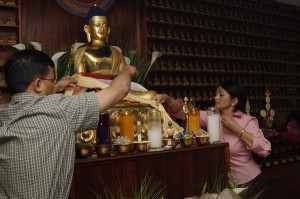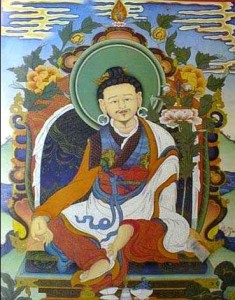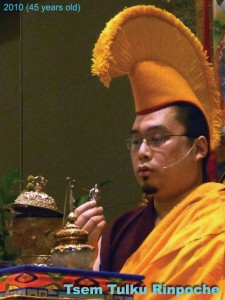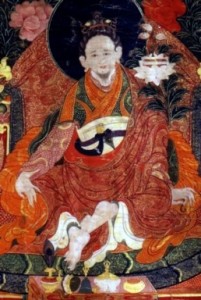The following is respectfully quoted from a commentary on the Bodhisattva Vows by Geshi Tashi: http://www.bodhicitta.net/BODHISATTVAVOWS.htm
5. Taking Offerings Intended for the Three Jewels
Taking offerings intended for the Buddha, Dharma and Sangha is considered a root downfall. Here the Buddha means any buddha image as well as the actual Buddha himself. At Jamyang we make many offerings to the big Buddha statue in the main gompa. Why is it so bad if you steal something from a statue? It is just a statue. Peter Griffin built it out of plaster. We all know that. But still, it is more than that. Within the statue are many, many mantras and there have been so many strong prayers made to the statue. So this is no longer just an object made by Peter. After he completed it many great masters such as His Holiness the Dalai Lama, Lama Zopa Rinpoche and Denma Locho Rinpoche have blessed it and many people, with sincere conviction, have made prayers in front of it. It is not just an image, it is an inspiration, and, for a Buddhist practitioner, it really represents the Buddha.
So things offered to the Buddha’s image are offered to the Buddha. It is the same with any holy object – a statue, a stupa, a thanka. It is not as if the objects ‘own’ the offerings. But although there is no one who says, ‘This belongs to me’, taking those offerings is the same as stealing from a buddha. The offerings have been sincerely offered, so it is very important to learn how to handle those objects with great sensitivity.
In the monastery, handling the monastery’s things is a very sensitive issue – not for only those monks who have the responsibility of looking after those things but also for people coming from outside. Traditionally, Tibetan people are very, very careful. Even when having a cup of tea in a monastery, they pay a lot of attention because the object they are using is really dedicated towards the Three Jewels, the Buddha, Dharma and Sangha. This is true of any property that belongs to a community, but much more so a spiritual community such as a monastery or a Dharma centre.
It is a very sensitive point. When Nagarjuna was asked to become the monk in charge of the monastery property, he completely declined. There is a prayer which he wrote requesting not to be born in charge in a monastery because he saw how heavy a downfall it was if that property was mishandled.
People contribute things to Dharma centres with a sincere heart, really wishing to help the development of the community. Because places like this are such powerful objects, if we misuse their possessions we are creating a much heavier negativity than if we misuse a normal person’s possessions.
And of course, taking without permission is much, much heavier than if someone in charge gives you something and you misuse that.
It is the same with taking from the Sangha. ‘Sangha’ very strictly speaking refers to a person who has a direct realisation of emptiness, or more generally to fully ordained monks or nuns but very loosely speaking, Sangha can refer to people who are practising the spiritual path. It is very important to know how to use things which belong to that kind of community.






